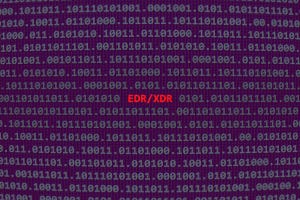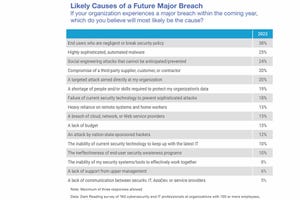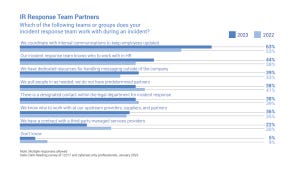Mideast & Africa News

Evil XDR: Researcher Turns Palo Alto Software Into Perfect Malware
Evil XDR: Researcher Turns Palo Alto Software Into Perfect Malware
It turns out that a powerful security solution can double as even more powerful malware, capable of granting comprehensive access over a targeted machine.
Latest Commentary
Field Chief Technology Officer, Commvault
Independent Cybersecurity Consultant
Director, Executive & Board Cyber Services, Sygnia
Professor of the Graduate School, UC Berkeley School of Information
Managing Partner for Critical Infrastructure, Optiv
Deep Reading
See More Dark Reading ResearchCaller ID spoofing and AI voice deepfakes are supercharging phone scams. Fortunately, we have tools that help organizations and people protect themselves against the devious combination.
Quantum computing on the level that poses a threat to current cybersecurity measures is still years off. Here's what enterprises can do now to avoid future disruptions.
Novacoast's Apex Program prepares individuals with visual impairments for cybersecurity careers.
Cybersecurity Features In-Depth: On security strategy, latest trends, and people to know. Brought to you by Mandiant.
Security Technology: Featuring news, news analysis, and commentary on the latest technology trends.
Modern networks teem with machine accounts tasked with simple automated tasks yet given too many privileges and left unmonitored. Resolve that situation and you close an attack vector.
Permiso Security announced Cloud Console Cartographer during Black Hat Asia to help defenders look inside Amazon Web Services events logs for signs of cyberattacks.
Recent analysis shows that enterprises need to think about the impact on security budgets and resources as they adopt new AI-based applications.
A survey of cybercrime experts assessing the top cybercrime-producing nations results in some expected leaders — Russia, Ukraine, and China — but also some surprises.
Israel prepares for a response to Iran's April 14 drone and missile attack.
Cyberattacks tripled over the past year in Israel, making it the most targeted nation in 2023, as cyber operations become a standard part of military conflicts and global protests.
Breaking cybersecurity news, news analysis, commentary, and other content from around the world.
Partner Perspectives
More Partner PerspectivesPress Releases
See allBlack Hat USA - August 3-8 - Learn More
August 3, 2024Cybersecurity's Hottest New Technologies: What You Need To Know
March 21, 2024
The fuel in the new AI race: Data
April 23, 2024Securing Code in the Age of AI
April 24, 2024Beyond Spam Filters and Firewalls: Preventing Business Email Compromises in the Modern Enterprise
April 30, 2024Key Findings from the State of AppSec Report 2024
May 7, 2024Is AI Identifying Threats to Your Network?
May 14, 2024






.jpg?width=100&auto=webp&quality=80&disable=upscale)



























